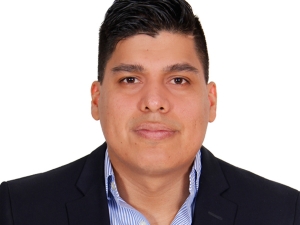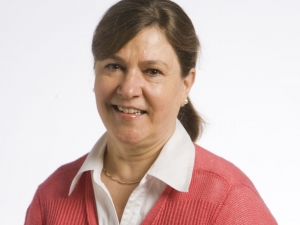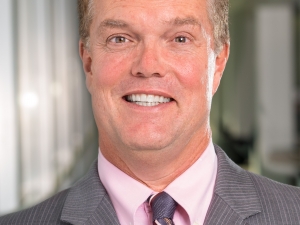Nearly 1,500 economists from across the country – including some from Duke Economics – sent a letter to President Donald Trump saying that immigration strengthens the economy. Signers of the letter include members of every administration since President Ronald Reagan. read more about In the Media: Economists Send Trump, Congress a Letter: Immigration Strengthens the Economy »
Craufurd Goodwin, a James B. Duke Professor Emeritus of Economics who in more than 50 years at Duke helped shape the university’s course during the strife of the 1960s and made Duke a leader in the study of the history of economic thought and boosted the profile of The Graduate School, died Thursday. He was 82. read more about In Memoriam: Craufurd Goodwin »
Is there an inherent trade-off between protecting the environment and promoting economic growth? WalletHub asks Professor Billy Pizer to weigh in on the value of environmental protection as part of a new study on the "greenest" U.S. states. read more about Commentary: 2017's Greenest States »
When the question of whom to award the 2017 Duke Financial Economics Center’s (DFE) Leadership Award came up this spring, the DFE teaching faculty had no difficulty agreeing that seniors Derek Chait and Felipe Concha were top contenders. Chait, an economics major with a finance concentration and Spanish studies minor, and Concha, a double major in economics and public policy studies, have been driven by their passion and work ethic in pursuing finance, leading them to excel in coursework as well as leadership and… read more about Seniors Chait, Concha Named 2017 DFE Leadership Award Winners »
Economics major Maya Durvasula was named as a Truman Scholar, Duke University announced Wednesday. Truman scholars are chosen based on their leadership, public service, academic achievement and likelihood of becoming public-service leaders. read more about Junior Maya Durvasula Selected as 2017 Truman Scholar »
Roberto Lagos (MAE ’16) is no stranger to change. In the past three years, he has moved to the United States, earned a master’s degree in economics, and worked at the Inter-American Development Bank (IDB). And now, he has pivoted to a new role. After a quick visit home to Honduras last month, Lagos returned to Washington, D.C. with a diplomatic passport in hand. Lagos serves directly under Ambassador Marlon Tábora in the Honduran Embassy as the newly appointed minister-counselor for economic affairs. This position… read more about Alumni Spotlight: Roberto Lagos (MAE '16) Named Honduras's Minister-Counselor for Economic Affairs »
On Monday night North Carolina beat Gonzaga to win a sixth national championship, effectively redeeming its three-point loss against Villanova last year. Stalwart Tar Heel fan Megh Freeland had two reasons to celebrate, as she became the first-ever two-time winner of the Duke Economics annual bracket challenge — impressive for someone who self-admittedly never expects to win. History repeated itself as she secured a 10-point lead over Professor Atila Abdulkadiroglu, who also predicted UNC would take the title. “It’s… read more about Megh Freeland Becomes First Back-to-Back Duke Econ Bracket Challenge Champ »
This morning, undergraduate Erin Brown surprised Social Science Research Institute Director Tom Nechyba with news he won the 2017 Alumni Distinguished Undergraduate Teaching Award. Sponsored by the Duke Alumni Association for more than three decades, this student-selected award honors a Duke professor who has excelled as a teacher, advisor, and leader of undergraduate students. read more about SSRI Director Tom Nechyba Surprised With Honor by Duke Alumni Association »
Professor William Darity, Jr. discusses the importance of stratification economics in understanding U.S. economic growth and inequality. read more about Equitable Growth in Conversation: An Interview With William Darity, Jr. »
Professor Gale Boyd comments in Vice on the proposed demise of the Energy Star program, which has saved consumers $362 billion. Boyd works with industrial plants to help develop benchmarking tools for the Energy Star program, using information that might be proprietary or otherwise not readily available to the companies to help them gauge their energy performance. read more about In the Media: Budget Efficiencies »
Are you down with TPP? Or do you say, “Down with TPP”? The Trans-Pacific Partnership was a divisive proposed trade agreement, but was it bad for the United States? Professor Edward Tower weighs in on WalletHub. read more about Commentary: Was the Trans-Pacific Partnership Bad for the U.S.? Experts Take Sides »
Gov. Roy Cooper's new budget proposal places a heavy emphasis on education spending. Calling Cooper's plan reasonable, Professor Hugh Macartney said he is optimistic about the potential increase in teacher pay. read more about In the Media: Gov Cooper's Budget Calls for Teacher Pay Raise »
Modern macroeconomists have begun to study how microeconomic units — specifically, consumers and firms — make decisions that can influence and shape macroeconomic outcomes. This trend emerged in the late 1990s and early 2000s as microeconomic data and increased computational power have become more widely available. Macroeconomist and new Duke University professor Matthias Kehrig studies these microeconomic foundations — or, as he puts it, looks at the “microeconomic picture behind the macroeconomic outcomes.” His… read more about Macroeconomist Matthias Kehrig Joins Duke Econ Faculty »
A corporate tax cut that could provide a big boost to profits, but investors are expecting too much from it. The Wall Street Journal cites a recent study co-authored by Professor Juan Carlos Suárez Serrato which suggests that over time about one-third of the tax cut would end up going toward workers rather than shareholders. read more about In the Media: A Taxing Problem for Investors »
Of the 20 news events rated by a New York Times panel, President Trump’s order to close the nation’s borders to people from seven nations was considered the most important. Professor Timur Kuran says the order “violated the U.S. Constitution, and it has raised the danger of global war based on religion.” read more about In the Media: Just How Abnormal is the Trump Presidency? »
Writing for the International Monetary Fund's quarterly publication, Finance & Development, Professor Connel Fullenkamp and his co-authors explain the dangers associated with financial institutions combining banking and nonbanking business. read more about New & Noteworthy: Risky Mix »
As the former CEO of 11 public and privately held companies, it's fair to say that Phil Johnston (B.A. '61) has a diverse background in business. The Duke alumnus has taken pen to paper to inspire others with what he has learned over the years. To date, he is the author of four books on business, including Success in Small Business is a Laughing Matter, heralded by Esquire as "the best book ever written about small business,” currently in its fourth printing. "The inspiration for my first book was the thrill and success of… read more about Alumni Spotlight: J. Phillips L. Johnston (B.A. ’61) »
"With a high-impact project, how do you find inspiring, ambitious solutions while also staying pragmatic?" Economics major Dipro Bhowmik (B.S. '18) reflects on his time working with the Bass Connections project team, Developing Departmental Energy Reports and a Carbon Pricing Program for Duke University (2016 - 2017). read more about Seeking Inspiring, Ambitious Solutions That Are Also Pragmatic »
In 2012, an accidental business idea helped rejuvenate the alumna. Today, neither she nor her energy-drink company is showing signs of slowing down. read more about Tatiana Birgisson (B.S. '12) Doesn't Rest »
Economics major Shengjie Yao (B.S. '19) reflects on his time working with the Bass Connections project team, Developing Departmental Energy Reports and a Carbon Pricing Program for Duke University (2016 - 2017). read more about The End (for Now) »
Hypoxic dead zones in the Gulf of Mexico drive up the price of large shrimp relative to smaller sizes, causing economic ripples that can affect consumers, fishermen and seafood markets alike, a new Duke-led analysis reveals. read more about Gulf Shrimp Prices Reveal Hidden Economic Impact of Dead Zones »
"Believe it or not, it was very important for us to come together and work on pottery to ensure that we successfully develop Departmental Energy Reports and an Internal Carbon Pricing Program for Duke over the next two semesters." Economics major Aashna Aggarwal (B.S. '19) reflects on her time working with the Bass Connections project team, Developing Departmental Energy Reports and a Carbon Pricing Program for Duke University (2016 - 2017). read more about Building a Team, a Clay Structure, and a Carbon Pricing Program »
Alumna Suhani Jalota (B.S. '16) was named one of the 2017 Queen's Young Leader Award winners for her work in women's health and female entrepreneurship initiatives in India. The award honors exceptional people aged 18-29 from across the Commonwealth who are taking the lead in their communities and using their skills to transform lives. Award winners receive training, mentoring, and networking opportunities, as well as a one-week residential program in the United Kingdom, during which they will receive their award… read more about Suhani Jalota (B.S. '16) Named 2017 Queen's Young Leader Award Winner »
"Local communities and corporations are both in favor, or at least willing to compromise, when it comes to sustainable energy. Government, however, has to be the one to create an environment capable of supporting these changes." Economics major Daniel Inmacolato (B.S. '17) reflects on his time working with the Bass Connections project team, Animal Waste Management and Global Health (2016 - 2017). read more about Rural Sustainability Summit »
A new report from the National Academies of Sciences recommends a new way to evaluate the social costs of carbon pollution to keep up with the best available science. Professor Billy Pizer and Living on Earth host Helen Palmer discuss the changes and why social cost evaluations are crucial to tackling carbon pollution. read more about In the Media: The Social Cost of Carbon »
Through crowdfunding, economics major Jiakun Xu and fellow Duke senior Xin Tong Lim set up three greenhouse farms in Nepal. read more about In the Media: Singaporean Undergrads Build Farms for Students in Nepal »
Professor Michael Munger talks with EconTalk host Russ Roberts about the virtues and negatives of a basic guaranteed income — giving every American adult an annual amount of money to guarantee a subsistence level of well-being. read more about Podcast: Professor Michael Munger on the Basic Income Guarantee »
Well into the fifth year of a three-year term, last June Professor Marjorie B. McElroy completed her stint as chair of the Committee on the Status of Women in the Economics Profession (CSWEP). For her tireless work on behalf of the committee, McElroy was recognized during CSWEP’s Annual Business Meeting on Jan. 7 in Chicago, Ill. at the 2017 Annual Meeting of the American Economic Association/Allied Social Science Association (AEA/ASSA). A standing committee of the AEA since 1971, CSWEP is charged with… read more about Professor Marjorie B. McElroy Honored by CSWEP for Service »
Does more equipment lead to more injuries in football? Professor Michael Munger cites the Peltzman effect, after the economist Sam Peltzman, which suggests that the feeling of safety can lead to an increase in risky behavior. read more about Commentary: The Dangers of Safety Equipment »
Duke Department of Economics faculty and graduate students will be attending the 2017 Annual Meeting of the American Economic Association (AEA) on Jan. 6-8, and presenting or participating as chairs, co-authors, discussants, or panelists in more than 35 events. Additionally, Duke Economics Ph.D. job market candidates have interviews scheduled throughout the three-day conference in Chicago, Ill. The following is a list of work to be presented at the meeting that have been authored or co-authored by our faculty and students… read more about Faculty, Grad Students Share Research at 2017 AEA Conference »





























